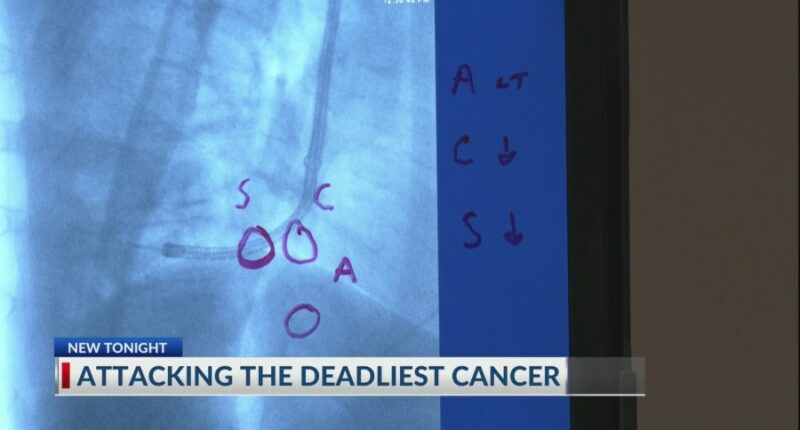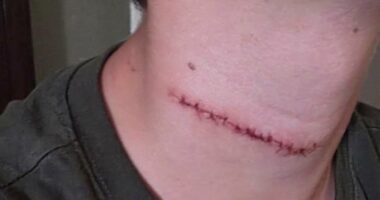Share this @internewscast.com

SAVANNAH, Ga. () — On Thursday, healthcare professionals in Savannah showcased their cutting-edge robotic technology, which allows for unprecedented precision in combating lung cancer.
The Monarch technique offers a more precise method of identifying lung cancer than standard imaging methods. St. Joseph’s/Candler is among a select few hospitals nationwide to implement this technology.
was granted exclusive access to observe Dr. Douglas Mullins as he performed the procedure, coinciding with Lung Cancer Awareness Month. Lung cancer remains the most lethal cancer worldwide, and this operation marked one of 1,600 procedures completed by Mullins.
The control device Dr. Mullins operates resembles a video game controller, while the screen display is similar to a Google map, guiding the precise navigation of the tube.
During the procedure, a small nodule or lump in the patient’s lungs, detected through a lung cancer screening, was the focus.
“We strongly suspect that this nodule is cancerous,” Dr. Mullins explained. “Given its very small size, it poses a challenge for a surgeon using the DA Vinci Robot to locate it easily.”
Mullins told News 3 that this groundbreaking tech allows them to locate the nodule and mark it, so the surgeon knows exactly how much of the area to remove.
“There are very few places in the country that are doing that, but it is gaining traction as we recognize that being able to leverage these technologies to diagnose smaller and smaller nodules and to do more and more limited surgeries so that patients have a quick recovery, short hospital stay, and small incisions,” Mullins said.
According to Dr. Mullins, doctors might have had a 10-15% chance of being able to randomly make a biopsy with a procedure. Now, accuracy is over 90% and much safer.
Dr. Mullins said giving the patients treatment options and getting them back to their routine is what brings him the most joy.
“Every patient that has this procedure done is absolutely thrilled,” Mullins said. “They recognize that something special has happened. Somehow, they had something that was very small that frequently is in other institutions, not even recognized as being a problem. A lot of times, these things are sort of ignored or presumed to be benign. But at our center, we have a lot of expertise and experience identifying things that may look small and harmless.”
Dr. Mullins encourages everyone to consider if they are a candidate for screenings as a preventative measure, whether you’re a smoker or have a family history of lung cancer.








